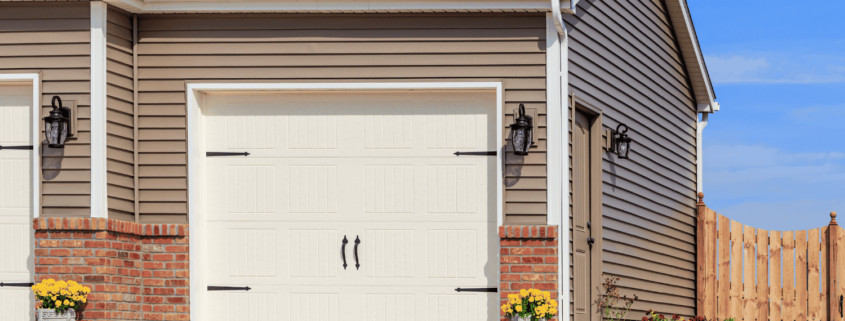How Long Does Vinyl Siding Last? Understanding Durability and Maintenance
On average, vinyl siding typically lasts 20 to 40 years, but how long does vinyl siding last when dependent on factors like weather, installation quality, and maintenance that can affect its lifespan? Read on to learn how to get the most out of your vinyl siding.
Key Takeaways
-
Vinyl siding typically lasts between 20 to 40 years, influenced by factors such as climate, installation quality, and maintenance.
-
Its low maintenance requirements, weather resistance, and aesthetic versatility make vinyl siding a popular choice among homeowners.
-
Professional installation is crucial for maximizing the lifespan of vinyl siding, helping ensure durability and weather resistance.
Vinyl Siding Lifespan: What to Expect

Vinyl siding is a durable option for home exteriors, typically lasting between 20 to 40 years, depending on various factors. Under optimal conditions, with professional installation and proper maintenance, long does vinyl siding can even outlast the home itself. This makes it a solid investment for homeowners looking to protect their property and enhance its curb appeal.
One of the significant advantages of investing in new vinyl siding is its ability to provide a protective layer, preventing costly damage over time. Choosing high-quality vinyl and having it installed correctly allows homeowners to benefit from this durable material for decades.
Factors Influencing Vinyl Siding Longevity
Several factors influence the longevity of vinyl siding, including weather conditions, UV exposure, and the quality of installation. Extreme temperatures and high winds can shorten the lifespan of vinyl siding, making it crucial to consider your local climate when choosing siding materials. Additionally, UV rays can cause fading over time, although this does not affect the structural integrity of the siding.
Quality is another critical factor. The thickness of the vinyl and the quality of the installation significantly impact how long the siding will last. A skilled professional should install the siding to maximize its lifespan. Regular inspections help identify minor damages early, keeping the siding in good condition.
How Quality Affects Vinyl Siding Lifespan
Not all vinyl siding is created equal. Premium brands of vinyl siding tend to last longer than lower-grade options, making them a better investment for homeowners seeking durability. These higher-grade materials are designed to withstand the elements and provide better protection for your home.
Premium vinyl siding can also reduce maintenance costs over time. While the initial cost may be higher, the long-term benefits of reduced replacement and upkeep make it a cost-effective choice. These factors should be considered when selecting siding to ensure the best value for the investment.
Why Vinyl Siding is a Popular Choice
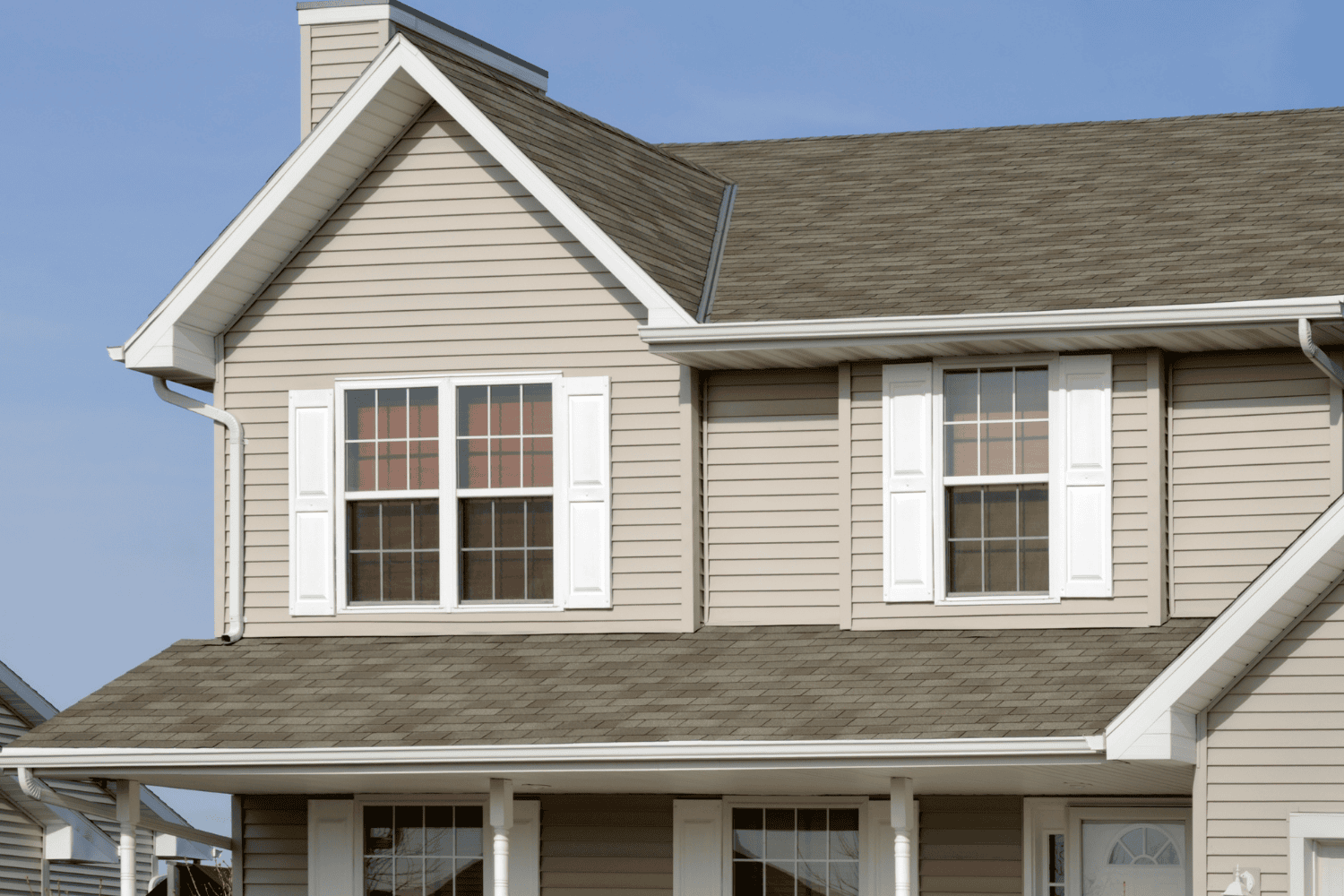
Vinyl siding is a popular choice for many homeowners due to its affordability, weather resistance, and aesthetic versatility. It is an excellent option for those looking to enhance their home’s curb appeal without breaking the bank. Available in various colors and styles, vinyl siding can match any architectural design, making it a flexible material for home exteriors.
In addition to its cost-effectiveness, vinyl siding requires minimal maintenance compared to other siding materials. This low-maintenance option remains visually appealing without extensive care, making it a practical choice for busy homeowners who want a beautiful exterior with very little maintenance.
Low Maintenance Requirements
One of the most appealing aspects of vinyl siding is its low maintenance requirements. Unlike wood siding, which requires regular painting or staining, vinyl siding can be kept looking fresh with just soap and water. This ease of cleaning eliminates the need for extensive upkeep, saving homeowners time and effort.
Moreover, vinyl siding is not susceptible to insect damage, unlike wood siding. This resistance to pests further reduces maintenance concerns, making vinyl siding an excellent choice for those seeking a durable and low-maintenance exterior option.
Energy Efficiency and Insulation
Vinyl siding is not just about looks and durability; it also offers energy efficiency benefits. Acting as an effective thermal barrier, vinyl siding helps to regulate indoor temperatures, making homes more energy-efficient. This can lead to lower energy bills and a more comfortable living environment.
For those looking to enhance this benefit, insulated vinyl siding is available, which minimizes heat transfer even further. This added insulation can make a significant difference in homes located in areas with extreme temperature swings, providing both comfort and cost savings.
Aesthetic Versatility
Vinyl siding offers unparalleled aesthetic versatility, available in a wide range of styles and colors to suit any homeowner’s taste. Whether you prefer a traditional look or a modern design, vinyl siding can be customized to match your vision for your home’s exterior.
Modern vinyl siding closely mimics the appearance of wood, providing an attractive alternative without the associated maintenance. This allows homeowners to enjoy the classic beauty of wood siding with the added benefits of durability and low maintenance.
Comparing Vinyl Siding to Other Materials
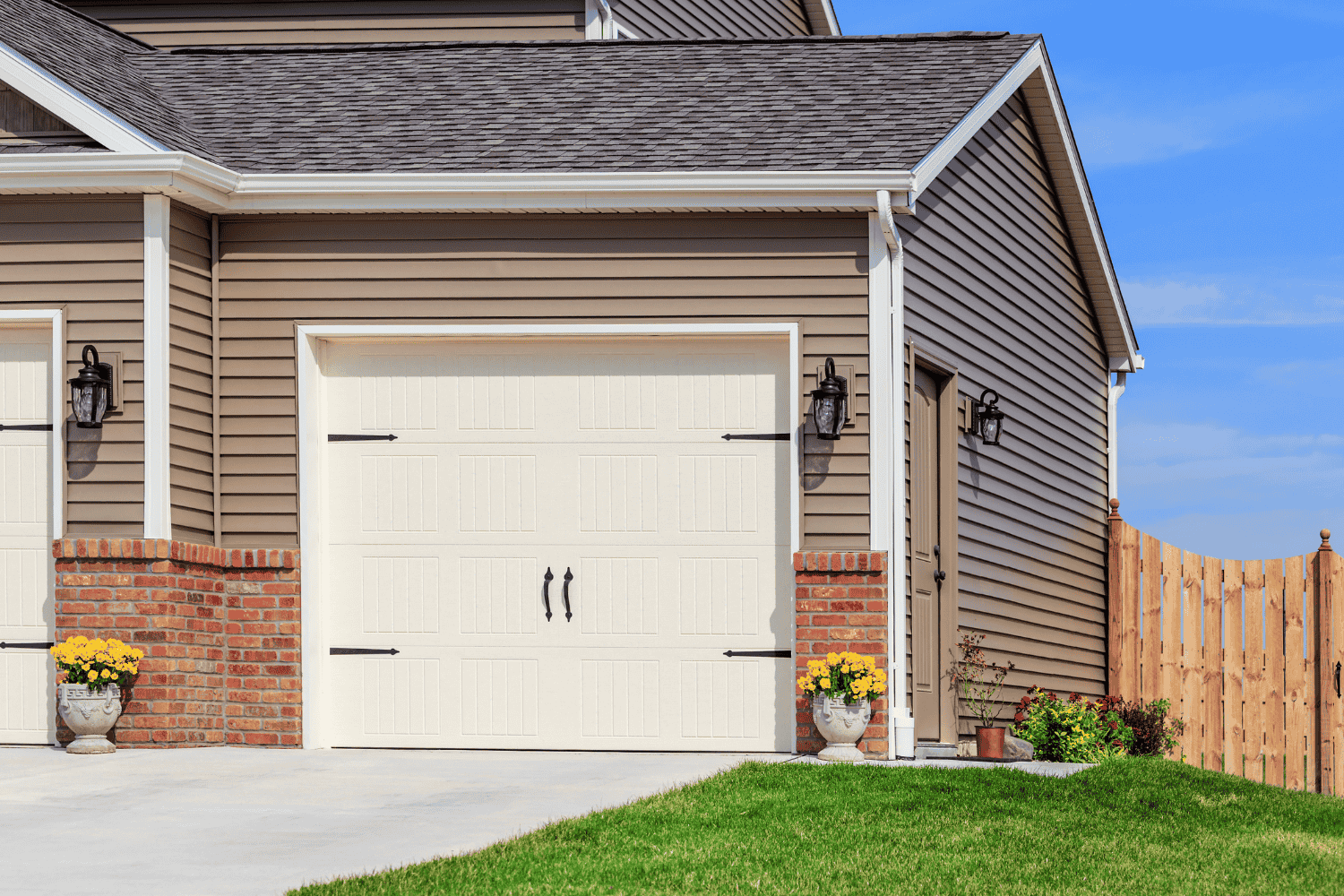
When choosing siding material for your home, it’s essential to compare vinyl siding with other materials like fiber cement, wood, and metal. Each material has its unique advantages and drawbacks, influencing factors like pricing, durability, and maintenance needs.
These differences help homeowners make an informed decision that suits their needs and budget. Let’s delve into how vinyl siding stacks up against these other popular options.
Vinyl vs. Fiber Cement Siding
Fiber cement siding is known for its exceptional durability and fire resistance, making it a robust alternative to vinyl siding. While vinyl siding typically lasts between 15 to 40 years, fiber cement siding can last the lifetime of the house if properly maintained.
However, this durability comes at a higher cost. Fiber cement siding is generally more expensive than vinyl siding, but its longevity and reduced maintenance needs may justify the investment for some homeowners. Additionally, vinyl siding offers more options for maintaining appearance, requiring less upkeep than fiber cement.
Vinyl vs. Wood Siding
Wood siding offers natural beauty and a classic appeal that many homeowners love. However, this aesthetic advantage comes with higher maintenance requirements. Wood siding needs regular painting or staining to protect it from the elements, making it a more labor-intensive option.
In contrast, vinyl siding is known for its low maintenance requirements, making it a popular choice for busy homeowners. The trade-off between the aesthetic appeal of wood siding and the ease of maintenance of vinyl siding is a crucial factor for homeowners to consider when selecting siding materials.
Vinyl vs. Metal Siding
Metal siding, including aluminum and steel, is another durable option for home exteriors. Aluminum siding has a lifespan of approximately 20 to 40 years, similar to vinyl siding. However, aluminum is known to dent easily, which can affect its durability.
Steel siding, on the other hand, offers superior weather resistance and protection compared to vinyl. While metal siding provides outstanding durability with minimal upkeep, vinyl siding remains a cost-effective choice that balances affordability and maintenance.
Proper Care and Maintenance for Vinyl Siding
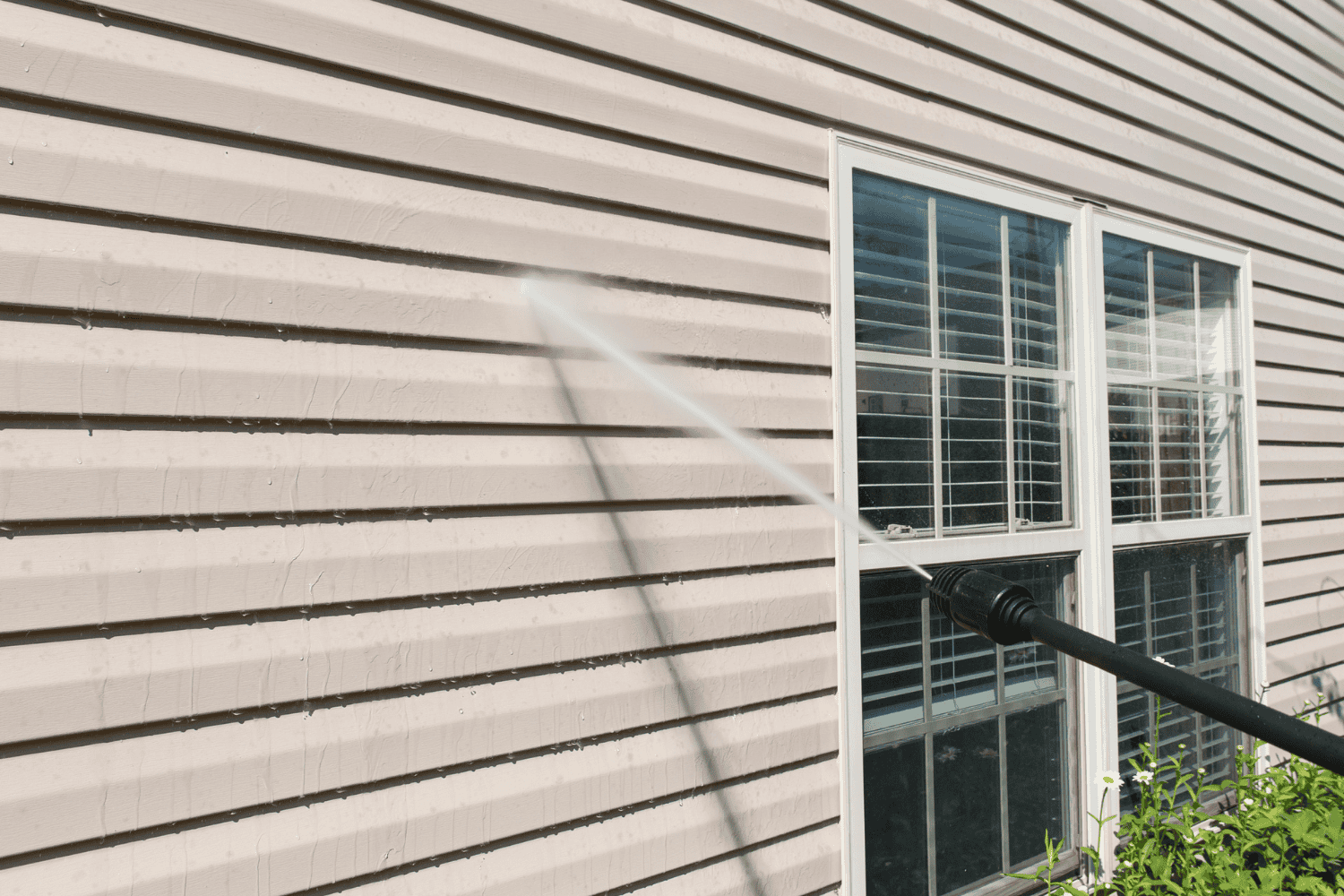
Regular maintenance is essential to prolong the lifespan of vinyl siding. Simple cleaning routines can keep your siding looking its best and prevent issues like mold and mildew buildup. Proper installation avoids problems like trapped moisture, which can cause internal leaks and structural issues.
Following recommended maintenance practices keeps vinyl siding durable and attractive for many years. Let’s explore some specific tips for cleaning and maintaining vinyl siding.
Regular Cleaning Tips
Cleaning vinyl siding is straightforward and requires only a few basic tools. Using a soft-bristle brush and a mild detergent is recommended to avoid scratching the surface. A mixture of soap and water works well for regular cleaning, and it’s best to avoid high-pressure washing methods that can damage the siding.
Eco-friendly cleaning products effectively clean the siding while protecting the environment. Clean your vinyl siding at least once a year to prevent buildup and maintain its appearance.
Avoiding Common Mistakes
While maintaining vinyl siding is relatively easy, homeowners should avoid common mistakes that can cause damage. For example, using high-pressure washers can harm the siding and lead to water infiltration. Instead, opt for gentler cleaning methods to preserve the siding’s integrity.
Another common mistake is neglecting regular maintenance. Skipping inspections and cleanings can lead to more significant issues over time, reducing the lifespan of the siding. Proper care and attention keep your vinyl siding in top condition.
Inspecting for Damage
Regular inspections are vital for maintaining the durability of vinyl siding. Homeowners should look for signs of wear, such as cracks or loose panels, during their inspections. Addressing these issues promptly can prevent more significant damage and ensure the siding continues to protect the home.
Also, check for mildew and other signs of moisture damage. Regular inspections and timely repairs are critical to maintaining the structural integrity and appearance of your vinyl siding.
Signs It’s Time to Replace Your Vinyl Siding
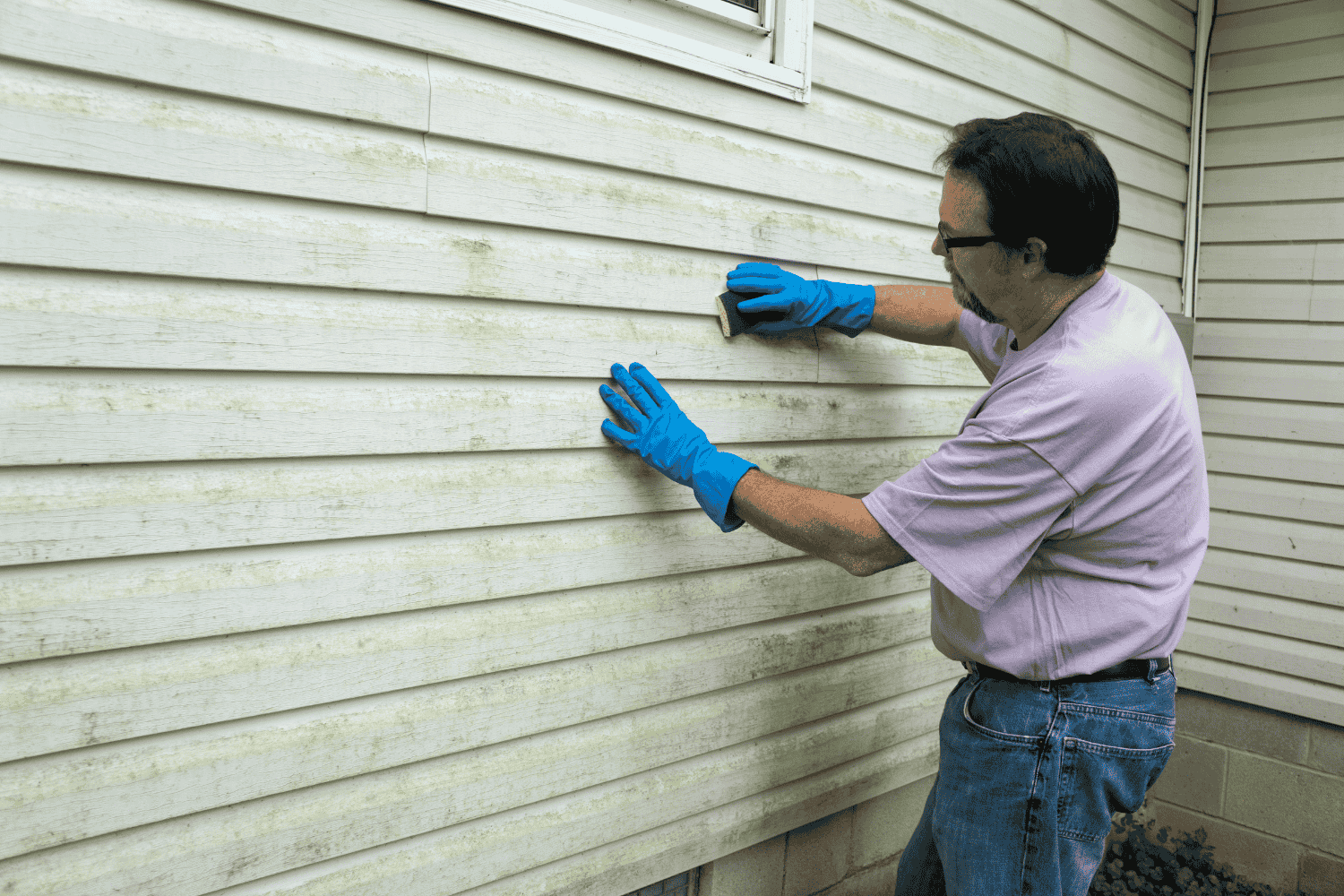
Recognizing the signs that indicate it’s time to replace your vinyl siding is crucial for maintaining your home’s exterior. Visible cracks, dents, or holes can signal significant damage that compromises the siding’s protective capabilities. If you notice these red flags, it may be time to consider new siding.
Other signs include issues with functionality, such as loose boards or siding that no longer fits snugly against the house. Addressing these indicators promptly ensures your home remains well-protected and visually appealing.
Professional Installation Matters
Professional installation is a key factor in maximizing the lifespan of vinyl siding. Proper installation secures the siding and helps it withstand weather conditions, reducing the risk of damage. Experienced contractors can prevent unnecessary issues and ensure the siding’s durability.
Experienced installers comply with local building codes and regulations, ensuring the job is done correctly and is properly installed. By choosing professional installation, homeowners can enjoy the full benefits of their vinyl siding investment.
Arocon: Your Trusted Siding Partner
Arocon specializes in delivering a wide range of services for home exterior needs, including siding installation and repairs. Their expertise ensures that every project is completed to the highest standards, enhancing your home’s curb appeal and providing long-lasting protection against the elements.
They offer free consultations to assess larger repair and replacement projects, ensuring tailored solutions that meet your specific needs. With a commitment to quality and customer satisfaction, Arocon is your trusted partner for all your siding needs.
Summary
Vinyl siding is a durable and cost-effective option for home exteriors, offering a lifespan of 20 to 40 years with proper care and maintenance. Factors such as weather conditions, installation quality, and material grade significantly impact its longevity. By investing in premium vinyl siding and ensuring professional installation, homeowners can enjoy long-lasting protection and aesthetic appeal.
Regular maintenance, including cleaning and inspections, is essential to keep vinyl siding in top condition. Recognizing signs of damage and addressing them promptly can prevent costly repairs and replacements. With the right care, vinyl siding can enhance your home’s beauty and functionality for decades. Trust professionals like Arocon to provide expert installation and maintenance services, ensuring your home remains protected and visually appealing.
Frequently Asked Questions
How long does vinyl siding typically last?
Vinyl siding generally lasts between 20 to 40 years, with longevity influenced by installation quality and regular maintenance. Proper care can maximize its lifespan effectively.
What are the benefits of choosing vinyl siding over wood siding?
Choosing vinyl siding offers significant benefits, including lower maintenance, resistance to insect damage, and the elimination of the need for regular painting or staining. This makes it a practical and cost-effective option for homeowners.
How does the quality of vinyl siding affect its lifespan?
The quality of vinyl siding significantly impacts its lifespan; premium-grade siding typically lasts longer and requires less maintenance, making it a more durable investment. Prioritizing quality will lead to greater long-term benefits.
What are some signs that it’s time to replace vinyl siding?
It’s time to replace vinyl siding if you notice visible cracks, dents, loose boards, or significant damage. Addressing these issues promptly can prevent further deterioration and maintain your home’s appearance.
Why is professional installation important for vinyl siding?
Professional installation is crucial for vinyl siding as it guarantees proper attachment, maximizing longevity and minimizing potential damage while ensuring compliance with local building codes. This expertise ultimately protects your investment and enhances the overall effectiveness of the siding.

